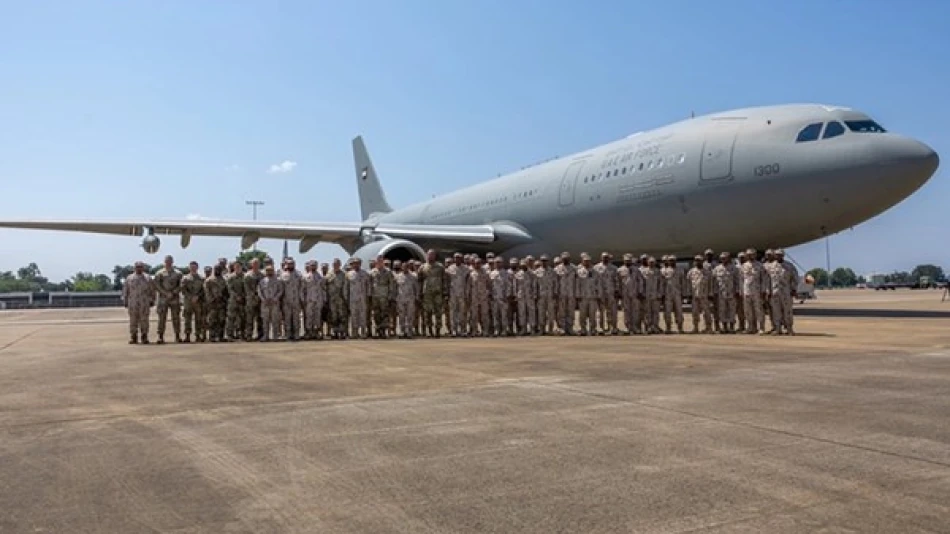
Emirati Forces Join U.S. Military Exercise, Enhancing Defense Cooperation
UAE and US Forces Deepen Military Partnership Through Joint Combat Training in Louisiana
The United Arab Emirates has deployed ground forces and Presidential Guard units to train alongside American troops at the Joint Readiness Training Center in Fort Polk, Louisiana, marking another step in the expanding military cooperation between the two strategic allies. This exercise reflects the UAE's growing role as a key defense partner for Washington in an increasingly volatile Middle East.
Strategic Military Cooperation Takes Center Stage
The UAE Ministry of Defense announced via social media platform X that the joint exercise falls under the framework of "shared military cooperation and enhancing combat readiness." The training represents part of approved programs designed to elevate the capabilities of UAE armed forces personnel and develop their field competencies.
Fort Polk's Joint Readiness Training Center serves as one of the US Army's premier combat training facilities, where units undergo realistic battlefield scenarios before deployments. The UAE's participation signals Washington's confidence in its Gulf partner's military professionalism and interoperability standards.
Regional Security Calculations Drive Partnership
Iran's Shadow Looms Large
This military collaboration comes as both nations face shared security challenges across the Middle East. Iran's regional influence, proxy networks, and nuclear ambitions have pushed the UAE closer to US defense frameworks, despite Abu Dhabi's traditionally pragmatic approach to regional diplomacy.
The timing is particularly significant as tensions simmer over shipping lanes in the Red Sea and Persian Gulf, where both American and Emirati interests converge around maintaining free maritime commerce.
Beyond Traditional Alliances
Unlike Saudi Arabia, which has historically dominated US-Gulf military partnerships, the UAE has carved out a distinct role as a more operationally flexible partner. Emirati forces have demonstrated combat effectiveness in Yemen, Libya, and other regional conflicts, earning respect from Pentagon planners who value experienced allies.
Defense Industry Implications
Joint training exercises often serve as precursors to major defense contracts and technology transfers. The UAE has emerged as one of the world's largest arms importers, with American defense contractors like Lockheed Martin, Raytheon, and General Dynamics securing billions in contracts over the past decade.
Enhanced interoperability through joint training creates operational requirements for compatible weapons systems, communications equipment, and logistics support – areas where US defense firms maintain technological advantages over competitors from Russia, China, or Europe.
Broader Geopolitical Context
This exercise reflects America's broader strategy of strengthening partnerships with capable regional allies as Washington seeks to maintain Middle Eastern influence while pivoting resources toward great power competition with China and Russia. The UAE offers an attractive partner: wealthy, militarily competent, and strategically located.
For the UAE, deeper military ties with Washington provide security insurance against regional threats while demonstrating to domestic and international audiences that the federation punches above its weight diplomatically and militarily. This partnership allows Abu Dhabi to project influence far beyond what its small population and territory might otherwise permit.
Most Viewed News

 Layla Al Mansoori
Layla Al Mansoori






